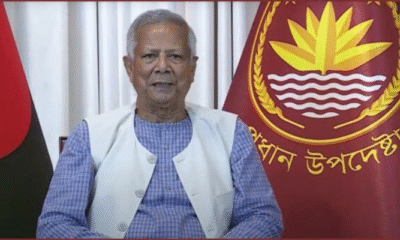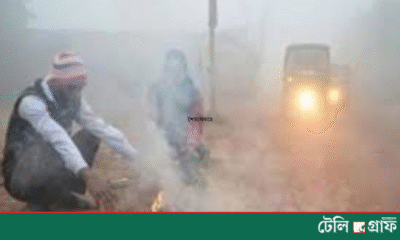Health
11 Left Blind, 493 Lost One Eye in Bangladesh Protests: Doctor Testifies
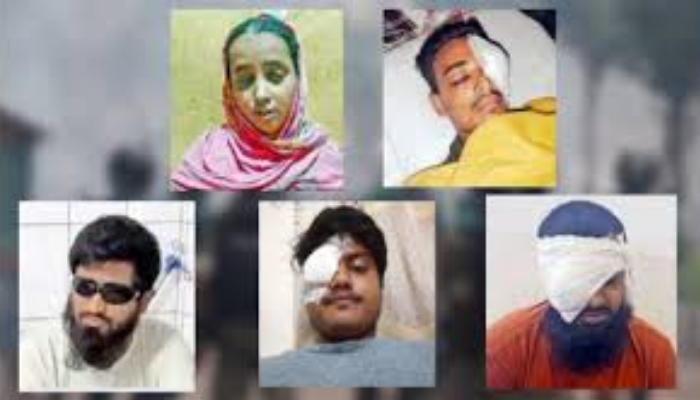
Dr. Zakia Sultana Neela, Assistant Professor at the National Institute of Ophthalmology, testified before International Crimes Tribunal-1 that during last year’s July-August protests, 11 people lost vision in both eyes and 493 lost sight in one eye due to bullet and pellet injuries.
Testifying on Monday, she stated that between July 17 and August 6, a total of 864 eye injury patients were admitted to the hospital. Among them, 28 are suffering from severe bilateral visual impairment, while 47 have severe vision loss in one eye.
According to her testimony, July 18 and 19 were the bloodiest days, with most victims aged between 14 and 25. Many sustained perforated corneas, ruptured eyeballs, or severe bleeding caused by bullets and metallic pellets.
She further noted that many patients concealed their real identities, using nicknames, fake phone numbers, and false ID cards for safety concerns.
The testimony came during a crimes against humanity trial against former Prime Minister Sheikh Hasina, ex-Home Minister Asaduzzaman Khan Kamal, and former IGP Chowdhury Abdullah Al-Mamun. So far, 24 out of 81 witnesses have testified.
Health
Kuakata hospital runs without doctors, patients return untreated
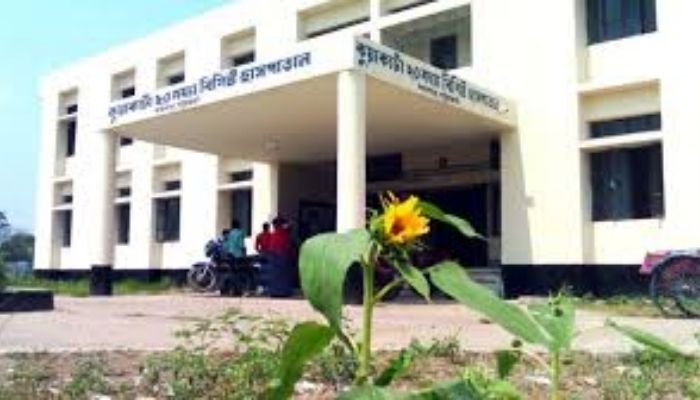
The 20-bed government hospital in Kuakata, Patuakhali, has become completely doctorless once again. After the transfer of its only doctor, Dr. Supriya Das, on September 17, medical services at the hospital have virtually come to a halt. Currently, both the emergency and outpatient departments are being run by a sub-assistant medical officer.
Patients are returning home without treatment. Momtaz Begum (38), from Latachapli Diar’s Amkhola area, said, “I came to see a doctor for my fever, but since there is none, I’ll buy medicine from a pharmacy instead.”
Local resident Hasan said that the hospital has never had full staffing since it opened. As a result, residents of Kuakata municipality and four unions in Mohipur upazila are being deprived of healthcare.
The hospital’s history shows chronic neglect. Its operations began on July 1, 2010, with the posting of the first doctor, Afroza Akbar, who mysteriously went missing in January 2011. After the formal inauguration on February 25, 2012, it functioned intermittently with one or two doctors.
Out of six sanctioned medical posts—including four junior consultants, one residential medical officer, and one medical officer—not a single doctor is currently employed. Of the 17 approved staff positions, 12 remain vacant, while many have been transferred elsewhere.
Hafizur Rahman Akash, president of the “Amra Kuakatabashi” volunteer group, said, “Kuakata is a major tourist destination. Ensuring proper healthcare for tourists and locals is essential. The hospital must be fully staffed immediately.”
Upazila Health Officer Dr. Shankar Prasad Adhikari admitted that there is a severe doctor shortage in Kuakata and nearby areas, adding that the issue has been reported to higher authorities.
Patuakhali Civil Surgeon Dr. Khaledur Rahman Mia confirmed the vacancy and said the problem would be resolved soon.
Health
Rising Uric Acid: How Lifestyle and Diet Fuel the Risk
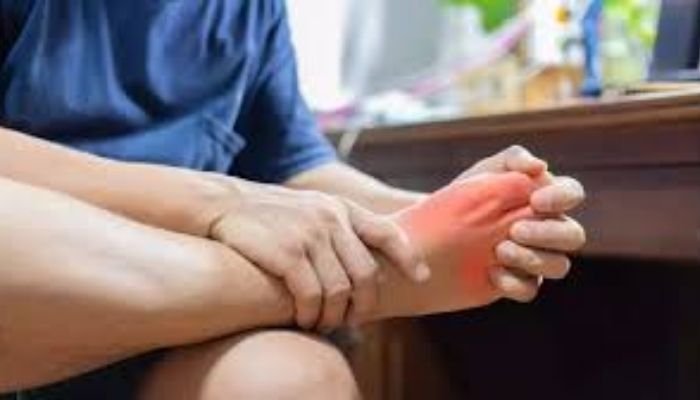
Excess uric acid in the blood can cause severe pain and mobility issues, often triggered by unhealthy diets and irregular lifestyles. Experts warn that people who cut carbohydrates and rely heavily on protein to lose weight are at greater risk of developing this condition.
According to health specialists, dietary control is the first step to managing uric acid. They advise consuming rice and bread in moderation and reducing the use of oil and spices in cooking. Eating more fruits, vegetables, and peanut butter is recommended. While cooked tomato and onion are safe, consuming them raw should be avoided.
Protein intake needs strict regulation—ideally matching body weight in grams (e.g., a 60 kg person should not exceed 60 grams of protein per day). Experts also suggest drinking fat-free milk, black coffee without sugar, or green tea instead of regular milk tea.
Patients are advised to avoid red meat, mutton, and prawns, while chicken can be eaten safely. Vitamin C-rich fruits like oranges, lemons, and grapes should be included in daily meals. Lentils, kidney beans, and soybeans should be eliminated from the diet.
For pain relief, drinking apple cider vinegar before bedtime and placing a pillow under the feet while sleeping may help. However, if the pain becomes severe, consulting a doctor is essential.
Health
The Double-Edged Effect of Coffee on Body and Mind

For many, coffee serves as a morning ritual or a means to stay focused during demanding work hours. Yet experts caution that its benefits come with notable risks. Caffeine, the key stimulant in coffee, refreshes the nervous system temporarily, but coffee is also acidic and diuretic, which can reduce vital resources in the body.
The risks become more concerning for individuals struggling with mental stress or anxiety. According to specialists, coffee consumption can elevate adrenaline and cortisol levels, creating a short-lived sense of excitement. However, once the effect fades, fatigue sets in, potentially leading to chronic stress over time.
Experts recommend that those under psychological pressure should consult healthcare professionals before relying on coffee, as unchecked consumption may worsen their mental and physical well-being.
-

 campus1 day ago
campus1 day agoAfter 36 Years, CU Students Vote in Long-Awaited Central Union Election
-

 EDUCATION1 day ago
EDUCATION1 day agoHSC and Equivalent Exam Results to Be Published on October 16
-

 International2 days ago
International2 days agoJordan’s King Abdullah warns: “Without a Palestinian state, the Middle East will collapse”
-

 Crime and Justice2 days ago
Crime and Justice2 days agoLand dispute turns deadly in Chuadanga: One killed, three injured
-

 International2 days ago
International2 days agoIsrael kills three Palestinians accused of crossing Gaza ceasefire line



